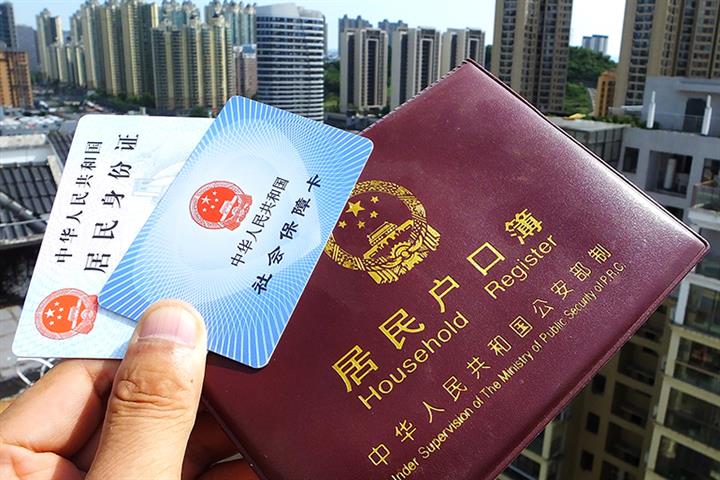 Many Chinese Cities Scrap Household Registration Curbs in Order to Grow Bigger
Many Chinese Cities Scrap Household Registration Curbs in Order to Grow Bigger(Yicai Global) Nov. 15 -- A number of Chinese cities are relaxing their rules on household registration, when in the past it was immensely difficult for ordinary people to change their permanent place of residence, so as to boost their population levels and bring in more talent.
Jinan is fully lifting its restrictions on the ‘hukou’ system to lure more skilled workers, and is introducing six new categories, including employment and the taking up of residence, through which people can apply for permanent residence in the capital of eastern Shandong province, the provincial government said on Nov. 10.
While Zhengzhou in central Henan province and Ningbo in eastern Zhejiang province said they eased conditions for household registration in September and October respectively.
And Dalian in northeastern Liaoning province, Kunming in southwestern Yunnan province, Fuzhou in southeastern Fujian province, Shijiazhuang in northern Hebei province, Nanchang in eastern Jiangxi province and other cities have also lifted the threshold for people to become permanent residents.
Making it easier for new arrivals to become permanent residents in these big cities is of key significance to nurturing a talent pool, accelerating development and optimizing the allocation of resources, Niu Fengrui, a researcher at the Chinese Academy of Social Sciences, told Yicai Global.
Permanent residents are those who have been living in a city for more than six months and do not include people who come for short stays such as business trips, tourism and to seek medical treatment, Niu said. But this floating population can reach several million in some economically developed metropolises, which is why municipal governments need to plan according to the actual population in order to meet real needs, he added.
And more people are seeking to live in so-called ‘new first-tier’ cities, which are contenders to the existing four first-tier cities of Beijing, Shanghai, Guangzhou and Shenzhen, as well as second-tier cities where properties prices are lower, the wealth gap is smaller and which tend to be less crowded, said Peng Peng, executive president of the Guangdong Institutional Reform Research Association.
Many of these big cities are keen to expand their population to at least 20 million, similar to that seen in Guangzhou and Shenzhen.
Zhengzhou wants a population of 21.6 million people by 2035, made up of 18 million permanent residents and the rest by a floating population, the municipal government said last month. Xi’an in central Shaanxi province also recently said that it expects to be home to 20 million people by 2035.
And Wuhan in Hubei province and Hangzhou in Zhejiang province are all planning public infrastructure based on an actual population of 20 million people.
Editors: Shi Yi, Kim Taylor